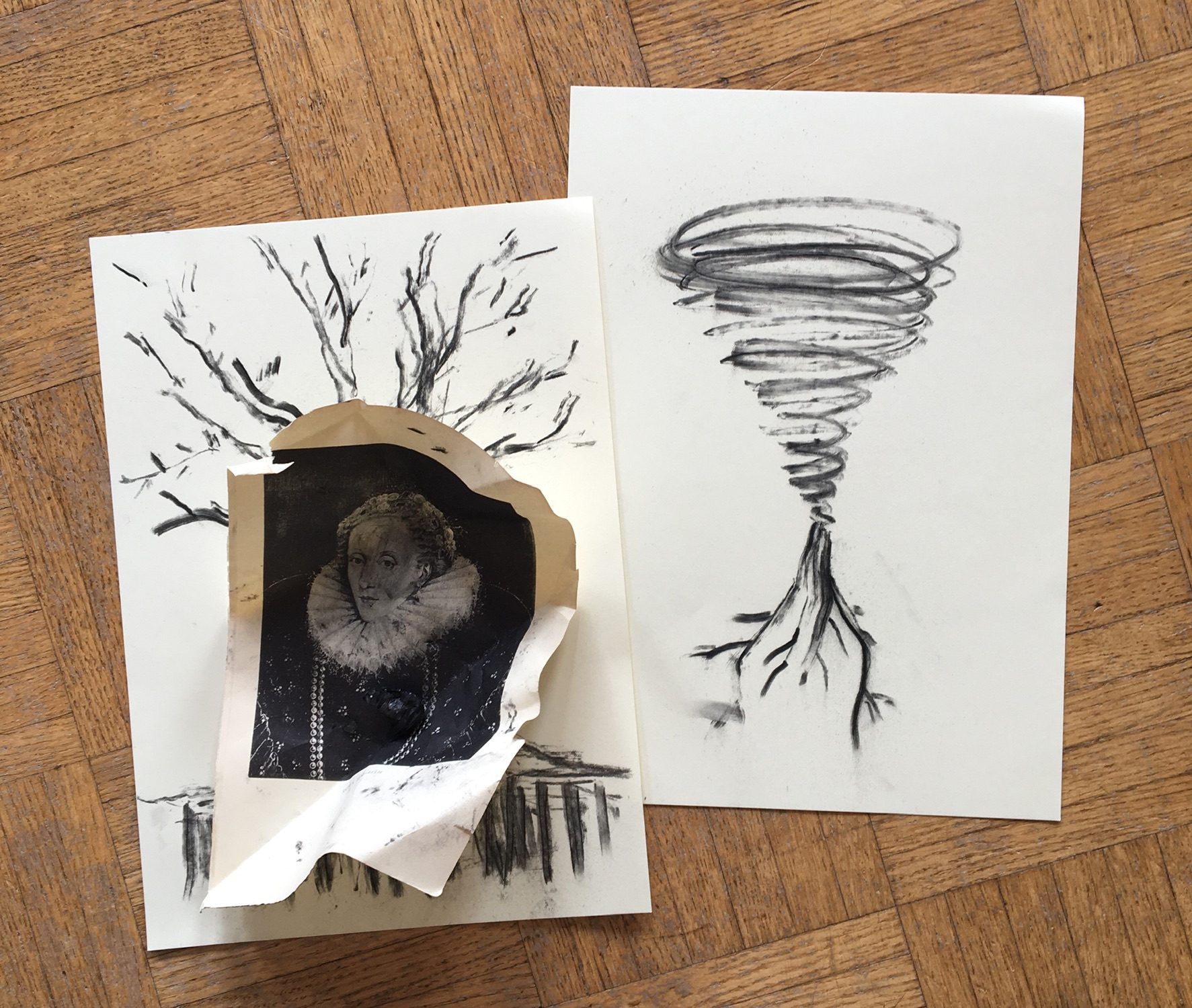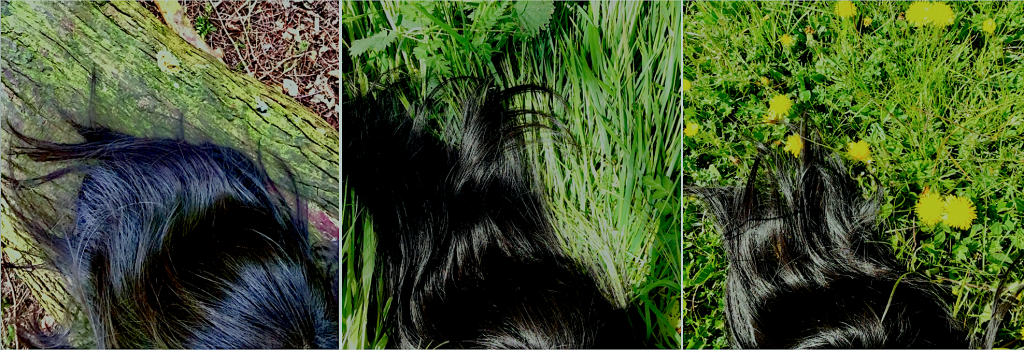
In Every Bite of the Emperor is the ongoing long term project about ecological grief. It aims to create the space of inter-species healing and solidarity by weaving through different geographical sites that share the pain of ecological trauma and broken communities. The prologue is written as the first processual residue of the project after the initial research around the subject. The following is the performative reading and transcript of it.
And the list of losses goes on
On and on, and on and on, and on and on…
My father warned me
Don’t go near seashore
There is a horror you cannot bear
Of course, I didn’t listen to him
Seventy tons of dead fish
No sign of life
I see my reflection in
their rotting eyes
I wear indescribable stinks of
their intoxicated flesh
I can hardly breathe
Chest pain wet cheeks
But father, if I don’t witness this
Where my blind sight would take me
—
In October 2019, 39 people were found dead in the back of a lorry in Essex. They died in suffocation whilst trying to cross the UK border illegally. The Home Office and the media quickly agreed to condemn people smugglers as a cause of this tragedy. However, the mainstream narratives around this incident did not acknowledge most victims are from two fishing villages in Vietnam where the marine ecosystem is completely destroyed. The multi-national steel corporate directly dumped their toxic waste into the ocean. Fishing became impossible. Tourism quickly died out. Most people in these two villages lost their livelihood and became people smugglers’ targets. Desperate young people decided to take a risk to help their families survive and follow their dreams.
The youngest victim was only 15 years old.
—
When Franz Fanon says ‘I entered the list’, I immediately think of death. Death of all kinds of lives and, of course, death of stories. Adrienne Maree Brown says ‘grief is not linear and it is everywhere.’ If grief is everywhere, they must be connected here and there. I have been looking for these dots.
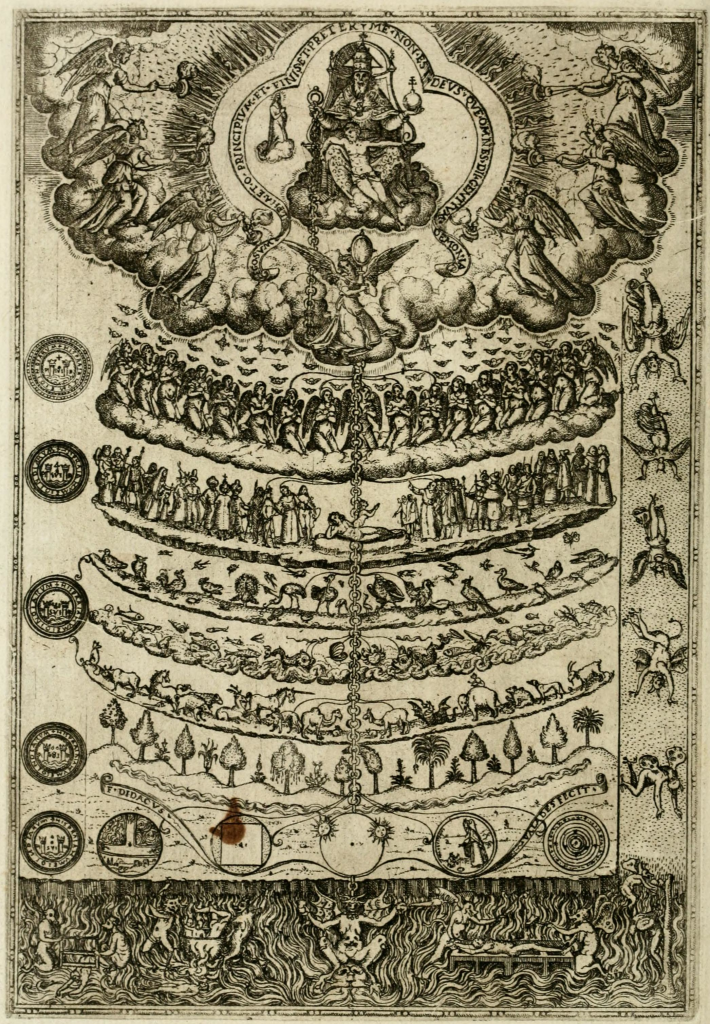
God-Angels-Humans-Animals-Plants-Minerals
God-Angels-Humans (read in a tone of emphasis)-Animals-Plants-Minerals
God-Angels-Humans (read in a tone of more emphasis) -Animals-Plants-Minerals
‘The Great Chain of Being’, in this medieval order of the world, everything descends from God. Carl Linnaeus, a revered botanical scientist, spent his whole life refining the taxonomic system for nature. First, he removed the spiritual sphere from the world of science. Without God, without angels, the hierarchy of his science kingdom descends from a very specific human variety – Europaeus Albus, white European along with sub racial species of red Americana, tawny Asiana and black Africana. The white European became the equation to God. Since then, the world has had to follow their order and serve them.
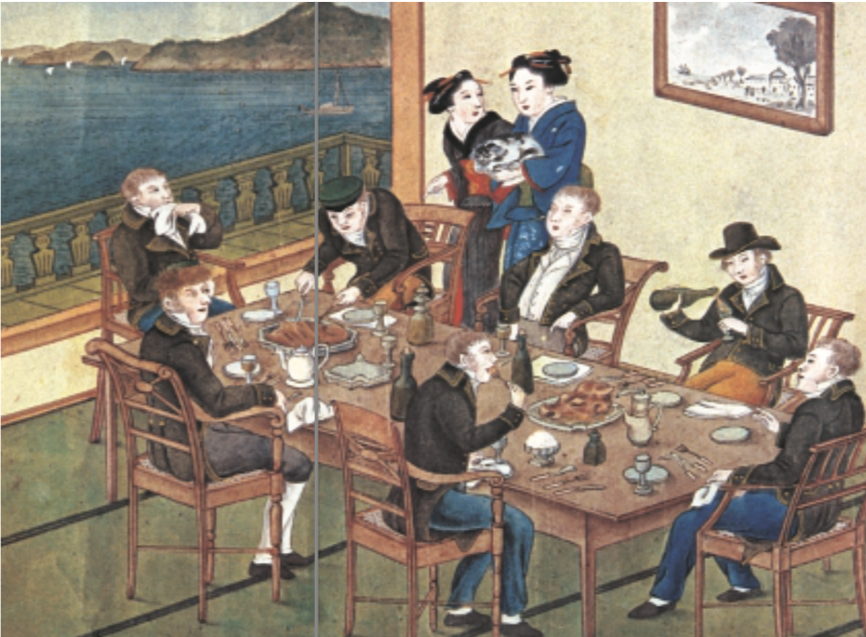
In 1872 Japan, the Meiji Emperor ingested meat in public as part of the New Year’s celebration. Proposing the West as the cultural superior, westernisation was accelerated in the Meiji era, including the ambition of transforming Asian bodies into western ones. This transformation wasn’t just about cutting hairs short and changing into the Victorian attires but also about everyday diet. Meat-centred western food consumption was declared as a national benefit in times meat-eating was a social taboo. It was a forceful institutional gesture.
I imagine myself as one of the spectators, quietly witnessing my emperor chewing the red meat and dismissing 900 years old social taboo. I foresee wiping out the forest, the slaughtering of trees and floras and species inhabiting them. In every bite of the emperor, I feel the blood filling up in my mouth. The taste of westernisation, the taste of great empire.
I feel sick.
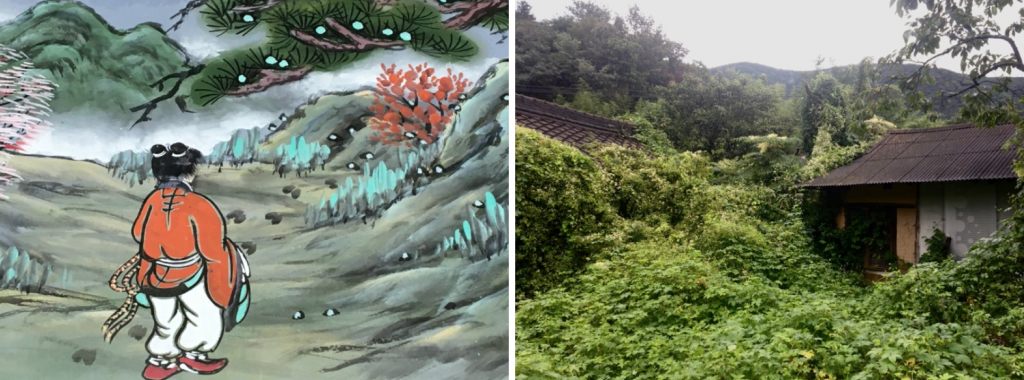
When you become a widow, you see widows everywhere.
When you lament, the ghost becomes no longer a stranger.
Every loss directs us to all other worlds co-existing.
They are beyond our eyes, beyond Latin alphabets.
History might select a few but the story needs all of us.
The story, not from your head, but your belly.
—
The field was full of bright yellow spots – a calling from dandelions. I imagined the bitter salad, tea and liquor, containing mineral goodness. I imagined my hands touching the wet soil, tightly cuddling around dandelion roots. I thought of my mother. She always manages to forage something regardless of the season whenever we go to the mountain together. I started digging up to harvest a few dandelions. But soon, a man with angst approached me.
“Excuse me! I am the keeper of this garden. What are you doing here?”
“I am just harvesting a few dandelions.”
The man started raising his voice. “Can you not see you are irritating the landscape? There was nothing here before I came. I secured the funding and have been working hard to create and protect this ecosystem. And now, you are destroying it!”
I was frightened and quickly hid my dirty hands and dandelions behind my back.
“Sorry, I didn’t know.”
At that moment, it wasn’t just the scolding man who upset me. The whole situation must have been comic to these dandelions as I heard them laughing and giggling, and saying, “Who protects whom?” “Did he just say nothing was here before he came?” I wished it wasn’t just me who could hear the dandelion voices. I wished that the man could understand the land he is standing on is beyond his capacity of protection, or destruction, and certainly beyond the funding schemes for conservation.
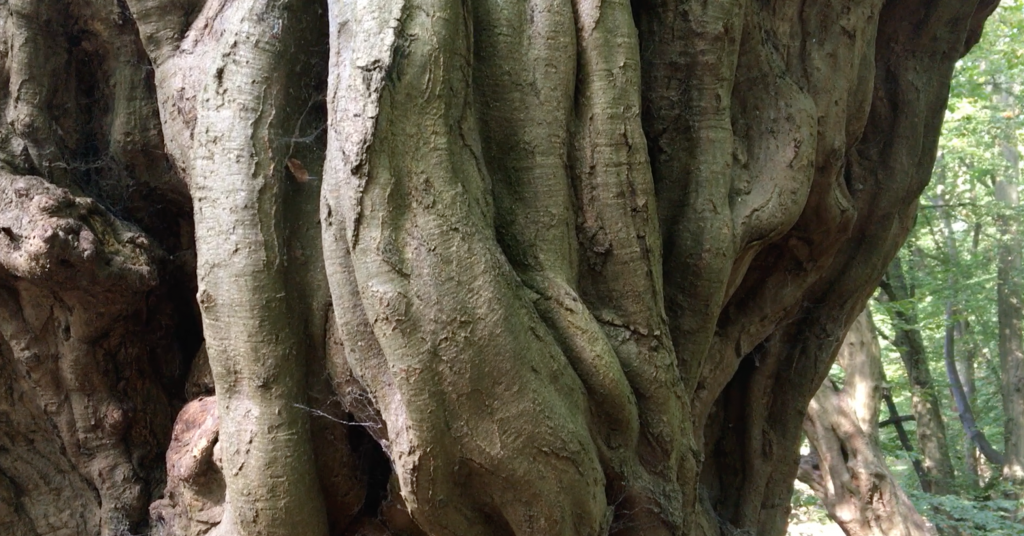
In 2014, the elders of Sampyounglee, a small farming village in Korea, gathered around their shaman tree. The purpose of this gathering is to call for protesting against the government plan to install the high-pressure transmission towers across their spiritual land. Two towers were scheduled to be built in this village, one in the No-In mountain where the community rituals are often held and the other, just behind this shaman tree. The construction for the first tower launched already with a series of explosion that upset the spiritual mountain. A few days later, the village suffered from the excessive amount of hail. It damaged all the orchards and onion fields. In that year, famers’ income declined to almost zero. The elders see it as a curse. Without funded scientific research and all those complicated numbers, the elders just know this is the result of ecological disruption and human’s arrogance and exploitation towards nature. The villagers are asking the mountain for forgiveness and praying to the tree for protection from further destructive progression.
Cleary, our elders’ trust is not on the state authority but on their ancestral tree and mountain who came to this world before them. The grandmothers recognise the importance of forming inter-species solidarity, calling not only humans but also all spirits of nature. Anna Tsing, in her book “the mushroom at the end of the world’, says that gathering becomes happening when the self starts getting ‘contaminated’ by the others – the indeterminate moments of self-and-other transformation. The elders were trying to shape their transformative moment by blurring not only self-and-other but also humans and non-humans, the material and the spiritual.
—
And I am here with a list, that is almost never-ending.
I beg you, not to give up, reading every name on it.
—
* In Every Bite of the Emperor has been supported by Heart of Glass, UK.
* The first iteration of this prologue was performed in Beyond the Anthropocene by Parallel State in the Coventry Biennial 2021 – Hyper Possible. The reiteration has been presented in the living library Make Interspecies Relations (2022) for Nextdoor ARI, Australia, Seoul Museum of Art exhibition Exceptional Times and Uncertain Moves (2023), and Heart of Glass annual art conference With For About 2023.
* The excerpt of the prologue has been published in The Minutes of the Hildegard von Bingen Society for Gardening Companions (Printed Matters, New York and London 2022), edited by Sophie Seita, Naomi Woo and Yael Ort-Dinoor.
